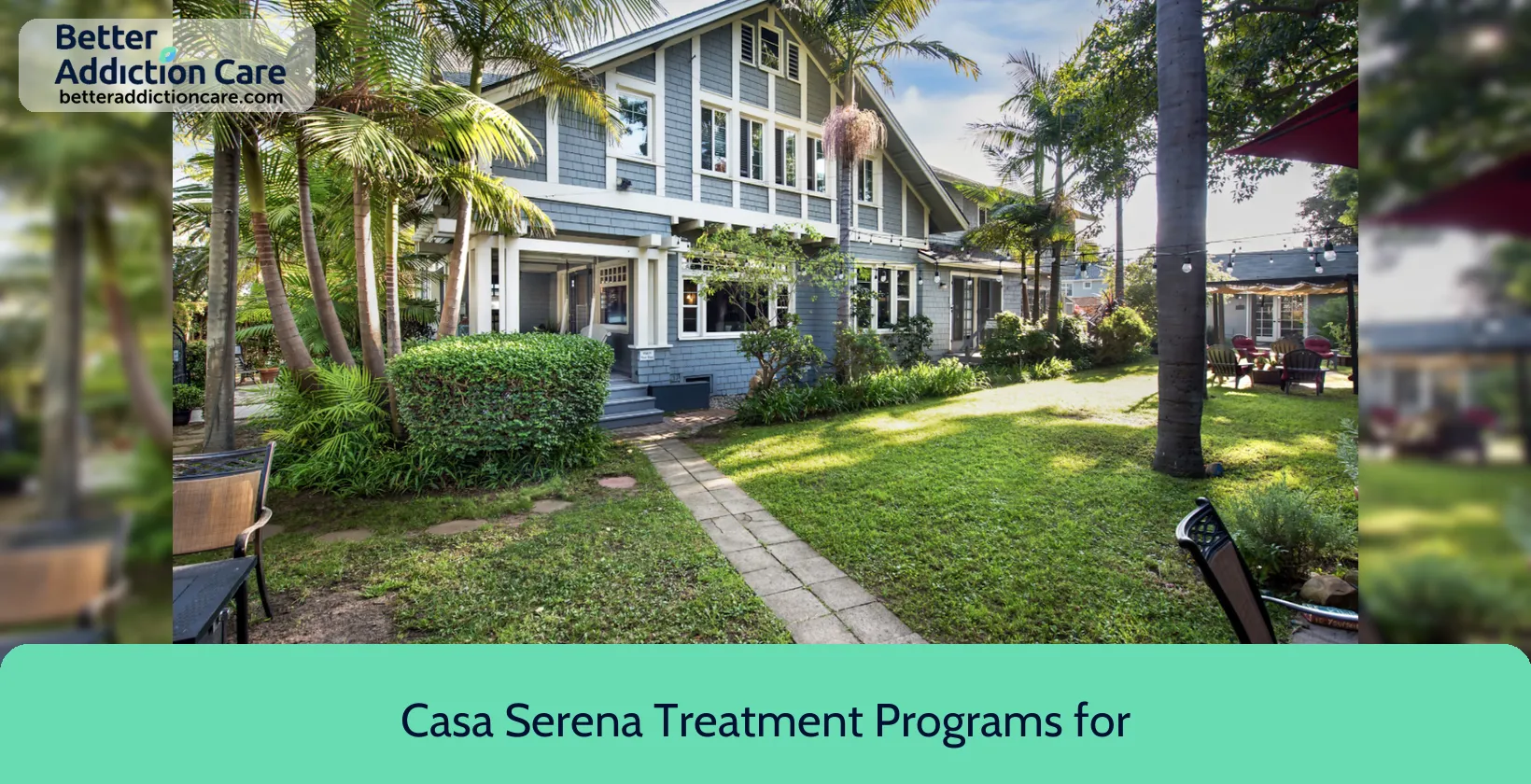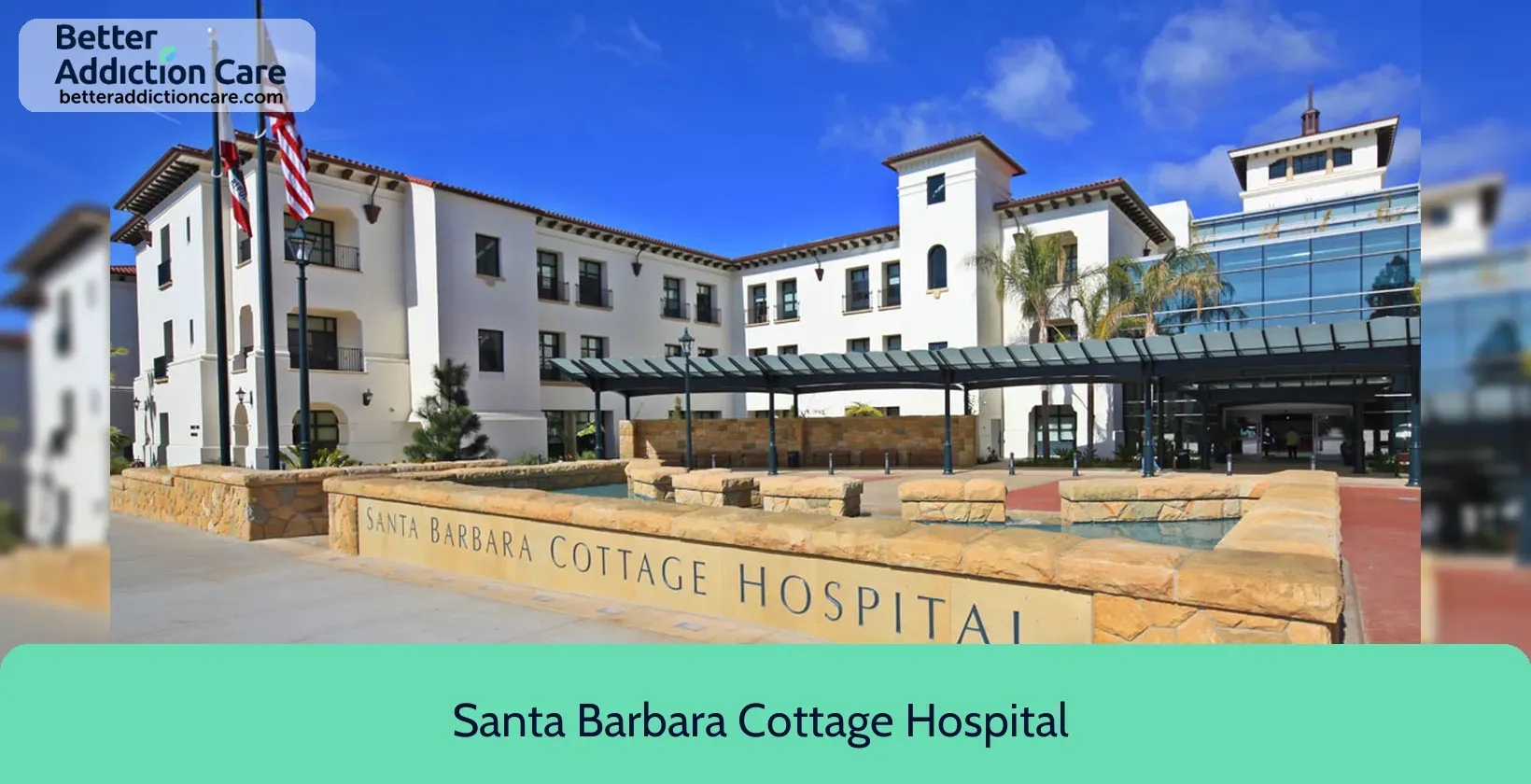Santa Barbara Cottage Hospital - Behavioral Health
Overview
Santa Barbara Cottage Hospital - Behavioral Health is a substance abuse treatment center for people seeking treatment near Santa Barbara County. As part of their treatment modalities for recovery, Santa Barbara Cottage Hospital - Behavioral Health provides group counseling, family counseling, and individual psychotherapy during treatment. Santa Barbara Cottage Hospital - Behavioral Health is located in Santa Barbara, California, accepting private health insurance for treatment.
Santa Barbara Cottage Hospital - Behavioral Health at a Glance
Payment Options
- Private health insurance
- Cash or self-payment
- Medicare
Assessments
- Comprehensive mental health assessment
- Comprehensive substance use assessment
Age Groups
- Adults
- Young adults
Operation
- Private for-profit organization
- Private non-profit organization
Highlights About Santa Barbara Cottage Hospital - Behavioral Health
6.75/10
With an overall rating of 6.75/10, this facility has following balanced range of services. Alcohol Rehabilitation: 8.03/10, Drug Rehab and Detox: 6.00/10, Insurance and Payments: 6.00/10, Treatment Options: 6.97/10.-
Alcohol Rehabilitation 8.03
-
Treatment Options 6.97
-
Drug Rehab and Detox 6.00
-
Insurance and Payments 6.00
Accreditations
The Joint Commission:

The Joint Commission, previously known as JCAHO, is a nonprofit organization that accredits rehabilitation organizations and programs. Established in 1951, its mission is to enhance the quality of patient care and showcase excellence in healthcare delivery.
Treatment At Santa Barbara Cottage Hospital - Behavioral Health
Treatment Conditions
- Mental health treatment
- Alcoholism
- Opioid Addiction
- Substance use treatment
- Co-occurring Disorders
Care Levels
- Intensive outpatient treatment
- Detoxification
- Outpatient
- Hospital inpatient/24-hour hospital inpatient
- Hospital inpatient detoxification
Treatment Modalities
- Group counseling
- Family counseling
- Individual psychotherapy
- Cognitive Behavioral Therapy
- Dialectical Behavior Therapy
Ancillary Services
Languages
- Sign language services for the deaf and hard of hearing
Special Programs
- Clients who have experienced trauma

Additional Locations
Get Help Now
Common Questions About Santa Barbara Cottage Hospital - Behavioral Health
Contact Information
Other Facilities in Santa Barbara

6.62

6.62

6.56

6.94

6.64
DISCLAIMER: The facility name, logo and brand are the property and registered trademarks of Cottage Residential Center, and are being used for identification and informational purposes only. Use of these names, logos and brands shall not imply endorsement. BetterAddictionCare.com is not affiliated with or sponsored by Cottage Residential Center.

